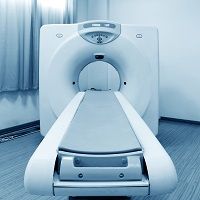Article
Identifying Neuroimaging Biomarkers for MS
Author(s):
There are differences in the tissue sodium signal and the fluid-attenuated sodium signal in the brain lesions of patients with acute multiple sclerosis (MS) and those with chronic MS, according to a recent study.

There are differences in the tissue sodium signal and the fluid-attenuated sodium signal in the brain lesions of patients with acute multiple sclerosis (MS) and those with chronic MS, according to a recent study. Armin Biller, of the Department of Neuroradiology at the University of Heidelberg in Germany, and colleagues, conducted the study, which was published on August 10, 2016, in the journal Nature.
Although magnetic resonance imaging (MRI) provides information about disease progression and lesions, the researchers say “the cascade of pathogenetic mechanisms in MS has no specific conventional MRI correlates.” They add that sodium MRI appears to have potential for improving the specificity of imaging. “We postulated that the fluid-attenuated sodium signal should differ between acute and chronic lesions, and, thus, provide additional information on lesion type in MS,” they said of their aim in undertaking the present study.
To investigate, the researchers examined the brain sodium and proton MRI data of 29 patients with MS. There were 302 lesions detected. The results indicate that sodium channels are important for immune cell function in MS.
Previous research “showed that the average tissue sodium signal is elevated in MS lesions compared to normal-appearing white matter, and increased in normal-appearing white matter of MS patients compared to healthy controls,” report the researchers. The present study confirmed those results, but also added information about the fluid-attenuated sodium signal. The researchers say, “the fluid-attenuated signal provides new biological information on MS lesions.”
The researchers believe that this study is the first step in identifying “neuroimaging biomarkers for diagnostic assessment and readout parameter for therapy monitoring, and complement clinical outcome measures,” they say, adding “this is especially relevant for MS patients as they rely on continuous follow-up MRI including gadolinium administration.”



